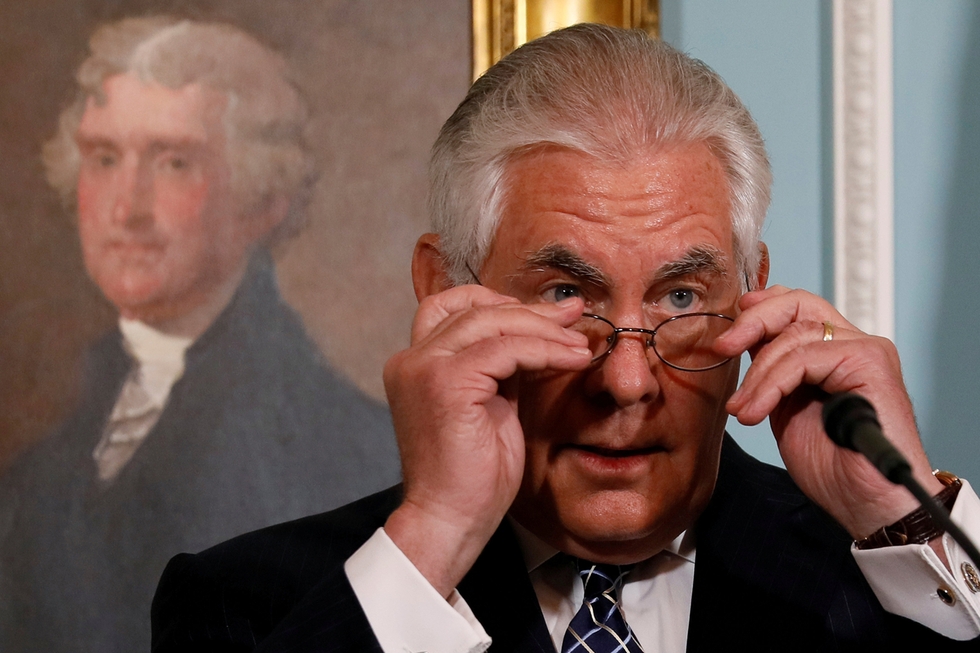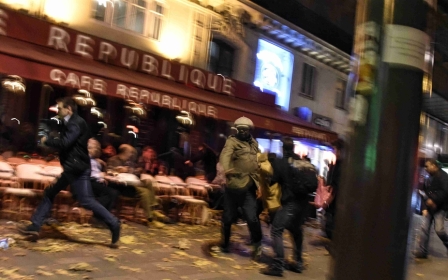US slams Middle East allies in 'religious freedom' report

The United States issued its annual religious freedom report on Tuesday, slamming allies and foes alike for their shortcomings at a time when its own record has come under fire.
Launching the first report since President Donald Trump took office, Secretary of State Rex Tillerson took swipes at Bahrain, China, Iran, Pakistan, Saudi Arabia, Sudan and Turkey.
The report does not look into policy in the United States, where Trump won office on a pledge to ban all Muslim immigration and is now battling US courts for the right to ban arrivals from eight Muslim-majority nations.
But Tillerson - who gave a brief address to launch the report - insisted the administration will continue to promote religious freedom around the world as a "moral imperative" and a universal human right.
"Religious persecution and intolerance remains far too prevalent," he said. "Almost 80 percent of the global population live with restrictions on or hostilities to limit their freedom of religion.
"Where religious freedom is not protected, we know that instability, human rights abuses, and violent extremism have a greater opportunity to take root," he warned, in a brief speech at the State Department.
The 2016 report itself, which US diplomats have been mandated by Congress to prepare, is not very different from that of the year before; a dry but detailed breakdown of the state of play across the world.
But Tillerson used his remarks and a preface to the report to draw attention to some particular offenders, including slamming the Islamic State (IS) group for committing “genocide”.
“ISIS has and continues to target members of multiple religions and ethnicities for rape, kidnapping, enslavement and death," Tillerson said in the report’s executive summary.
"ISIS is clearly responsible for genocide against Yezidis, Christians, and Shia Muslims in areas it controlled. ISIS is also responsible for crimes against humanity and ethnic cleansing directed at these same groups, and in some cases against Sunni Muslims, Kurds, and other minorities.”
“The protection of these groups – and others who are targets of violent extremism – remains a human rights priority for the Trump administration,” he added.
He again took the opportunity to criticise perennial US foe Iran, noting that the Islamic republic has used "vague apostasy laws" to execute 20 members of religious minorities over the past year.
But he also complained about the behaviour of some US friends, such as NATO ally Turkey, where he said non-Sunni Muslims, such as the Alevi, are not protected by the state from "discrimination and violence".
And he demanded Turkey release a US citizen, evangelical pastor Andrew Brunson, who has been "wrongfully imprisoned" since last year on charges he belongs to the banned movement of exiled cleric Fethullah Gulen.
America's allies in the Gulf, Saudi Arabia and Bahrain, were also in the firing line, despite Trump's recent triumphant visit to Riyadh to salute their support in the battle against Iran and violent militancy.
"We urge Saudi Arabia to embrace greater degrees of religious freedom for all of its citizens," he said. Saudi Arabia bans non-Muslims from practising religion in public and discriminates against Shias.
Russia, while it has a critical chapter in the report itself, is not one of the 10 countries currently of "particular concern", and US officials said Tillerson is not due to review these designations until another 90 days after Tuesday's report was made public.
The 2016 report itself - while required under the 1998 International Religious Freedom Act - does not bind the US administration to act.
But ambassador Michael Kozak of the Bureau of Democracy, Human Rights and Labour told reporters that its data would inform policymakers as they make decisions on diplomatic outreach and refugee admissions.
Countries listed separately as being "of particular concern" in terms of religious freedom can face sanctions, but Tillerson can also issue a waiver if he thinks it is in US interests to give them a pass.
Saudi Arabia, for example, faces no penalty for its hardline stance.
New MEE newsletter: Jerusalem Dispatch
Sign up to get the latest insights and analysis on Israel-Palestine, alongside Turkey Unpacked and other MEE newsletters
Middle East Eye delivers independent and unrivalled coverage and analysis of the Middle East, North Africa and beyond. To learn more about republishing this content and the associated fees, please fill out this form. More about MEE can be found here.




